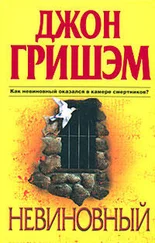Their journey was over. They had survived the massacre and the nightmare of fleeing, and they had arrived in a place that promised safety, food, water, and now a roof.
The children at first hung around the tents, too timid to venture far, but by dark they were playing down the street with a group of kids. The tents, and there were thousands of them, all identical, were staked in a perfect grid, block after block. Each tent was exactly two meters from the one next door, so that through the vinyl fabric walls a family spat four tents down was shared by many. Once inside, the women and children soon learned to whisper about everything.
The small plots provided for two meters of ground in front of the tent and next to the street, and two meters behind for cooking and urinating. A few outhouses were scattered through the community, but not enough. Long lines of people waited while others relieved themselves wherever they could. The stench of shit and urine permeated the air. The acrid smoke from cooking fires hung like a fog over the area.
Beatrice longed for the day she would have something to cook.
Monday, August 17, the first day of classes. Samuel woke up early, turned on lights, slammed drawers, showered making as much noise as possible, but was completely unable to rouse his roommate from his nightly comalike hibernation. Samuel dressed, left the dorm, and hustled over to the student union to drink coffee and watch the coeds. He had roamed the campus for hours and knew every building. At nine he had Sociology; at ten, African Studies; at noon, General Math. The most exciting part of the day would begin at three in The Nest when the team met with the coaches for the first practice. Under the current NCAA rules, they could be on the floor for exactly one hour four days a week until late September when the real work began. The first game was in early November.
He had been in the U.S. now for almost six weeks, and on campus for the last two, and the culture shock was fading. He marveled at the students and their affluence. Every single one had a cell phone and laptop, and most of them, especially the girls, did little but stare at their screens. And the clothes. Most wore cut-offs, tee shirts, and sandals, but there seemed to be an endless supply. Murray’s small closet was filled with more shirts than any ten men had in Lotta. Samuel realized immediately that no student could function without just the right backpack. He purchased one with his first paycheck, and with Murray’s help. He was startled at the number of students who owned cars and brought them to school. Parking on campus was difficult and highly regulated, but the traffic was still a mess.
In spite of his burdens, he was thrilled to be on an American campus and starting classes. When he walked into Sociology, there were a hundred students in a large hall, and at first glance he didn’t know a soul. Then, near the back, he saw the smiling face of a freshman football player. He sat beside him as the professor called things to order. All laptops opened.
Samuel took a second and closed his eyes and thought of his mother.
At 2:55, Coach Britt blew his whistle and all warm-ups stopped. He herded the players to a section of the bleachers and said hello.
There were sixteen of them: ten returning, two transfers, two freshmen, and two invited walk-ons. Of the ten returning, three were seniors, five were juniors, two, including Murray, were sophomores.
Coach Britt began by introducing the Director of Athletics and invited him to say a word or two, which he seemed delighted to do. He welcomed the team, talked about what a great season it would be, and so on. His real purpose, though, was to talk about their two teammates, both now out of jail but facing serious charges. He took responsibility for their dismissals and said the university had no choice. If they were eventually cleared, then he and the President would consider reinstatement. He did not want the incident to distract the team.
The AD left, and Coach Britt took over. He introduced the five student managers, all volunteers, and went on about how important they were to the program. He introduced his associate head coach, Jason Grinnell, and his two assistant coaches, Jackie Garver and Ron McCoy. The four had been together throughout Lonnie’s four-year tenure at Central. He introduced the director of basketball operations, the director of player development, the assistant director of operations, the team doctor, and the two trainers.
In Lotta, Samuel had two friends whose families owned small televisions with satellite reception, and generators, and he had watched plenty of college and professional games from the U.S. He was mesmerized by the spectacle of the game and motivated by its excitement, popularity, and pageantry. He understood most of it, but there were always lingering questions. The most puzzling was: Why do college teams have so many men in dark suits on the bench? Who are these people? Does a team with only five players on the court really need half a dozen coaches? Often, there were more men in dark suits than players in uniform.
He had posed these important questions to Murray, whose response was something like “That’s what everybody else does. Why does the football team need a hundred players?”
Coach Britt said there were six new faces in the crowd. He introduced the two walk-ons, then he introduced the two transfers, the first being Sherman Batts, who played the previous season at a community college in Florida. The second was Trevor Young, a high school all-American who hadn’t played much at Virginia Tech and would sit a year.
Then the two freshmen. Samuel Sooleymon, from the African republic of South Sudan, and Michal Rayburn from Wilmington. He bragged on each for a moment, then glanced at his watch and said, “All right, the NCAA says that we have only forty-five more minutes today. Let’s move to the dressing room and pick lockers. Seniors first, as always. Then we’ll hand out practice uniforms, new shoes, anything else you might need. Tomorrow you’ll get your first physical exams so be here a few minutes early.”
Each day began the same. There was nothing to vary the routine, nothing to change schedules that did not exist. For the displaced and war-scarred, waking in safety with the promise of food and water was a gift from God. They knew so many who had not survived.
Beatrice woke first and gently shifted her weight on the hard ground, careful not to wake her boys. The first rays of sunlight peeked through the mesh-covered window above her. She heard a few soft whispers from the nearby tents as mothers moved about. As always, her first thoughts were of her children. James and Chol were with her and they would soon be awake and asking about food. Angelina was gone and finding her would be a miracle. And where was Samuel? The team was scheduled to return by the first of August at the latest. Return to what? Surely Samuel by now knew of the massacre. There was no home, no village. Where would he go? In her dreams he finds Ayak and together they find Angelina, and the three of them are here, somewhere in the settlement, looking for Beatrice and the boys.
She had her morning prayer, followed by her morning cry. It was best to cry alone while the boys slept. For a long time she softly rubbed their legs as things came to life around her. More voices from the tents, more people moving in the mud street in front of the tents.
Soon, they would embark on the daily adventure of finding breakfast. The food drop-offs were well-known. The sounds of straining truck engines usually meant aid workers were arriving. Everyone in the long lines knew how to wait patiently for hours. There was plenty of food, and once those who had been starving realized this they were content to wait. They waited an hour for a breakfast of porridge and water, an hour for a lunch of beans, rice, and a small loaf of bread, an hour for a dinner of whatever was left over from the earlier meals. No meat, no fruit, nothing with a hint of sugar, but there were no complaints. The people had known the fear and physical pain of hunger and were relieved it had ended.
Читать дальше












